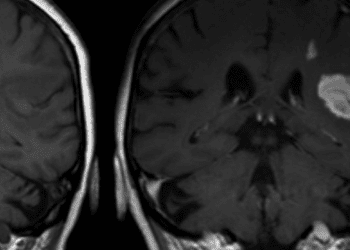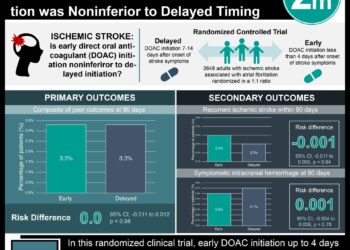Quick Take: Apixaban to Prevent Venous Thromboembolism in Patients with Cancer
The risk of venous thromboembolism (VTE) is significantly increased in patients with active cancer. While parenteral prophylactic anticoagulation has been shown to reduce the risk of VTE in cancer patients, its use is associated with an increased risk of major bleeding and the inconvenience of daily injections. Direct oral anticoagulants (DOACs) offer important advantages over parenteral agents, with a recent phase 2 trial suggesting that apixaban, an oral factor Xa inhibitor, may be used safely and effectively in this patient population. In this randomized controlled trial, 574 patients with newly diagnosed cancer or progression of known cancer starting a new course of chemotherapy were randomly assigned to receive twice daily apixaban (2.5 mg) or placebo to study the impact on the incidence of VTE within the first 180 days of treatment. Researchers found that the incidence of VTE was significantly less in the apixaban group (4.2%) compared to the placebo group (10.2%) (HR 0.41, 95% CI 0.26 to 0.65, p<0.001). During the treatment period, VTE was also less frequent in the apixaban group (1.0%) compared to the placebo group (7.3%) (HR 0.14, 95% CI 0.05 to 0.42). In the modified intention-to-treat analysis, major bleeding was more common in the apixaban group (HR 2.00, 95% CI 1.01 to 3.95, p=0.046). However, during the treatment period, there was no significant difference in rates of major bleeding between the two groups (HR 1.89, 95% CI 0.39 to 9.24). In summary, results from this study indicate that apixaban may reduce the rate of VTE in cancer patients initiating chemotherapy, although not without an increased rate of bleeding events when compared to placebo.
Click to read the study in NEJM
Image: PD
©2018 2 Minute Medicine, Inc. All rights reserved. No works may be reproduced without expressed written consent from 2 Minute Medicine, Inc. Inquire about licensing here. No article should be construed as medical advice and is not intended as such by the authors or by 2 Minute Medicine, Inc.







